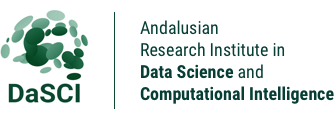The 3rd PTS Granada Research Congress rewards the most innovative research for its contribution to the advancement of knowledge in the life and health sciences.
7 February, 2025
A meeting in which more than 400 attendees were able to learn about the latest research in biomedicine and biotechnology, connect with other experts and hold B2B meetings.
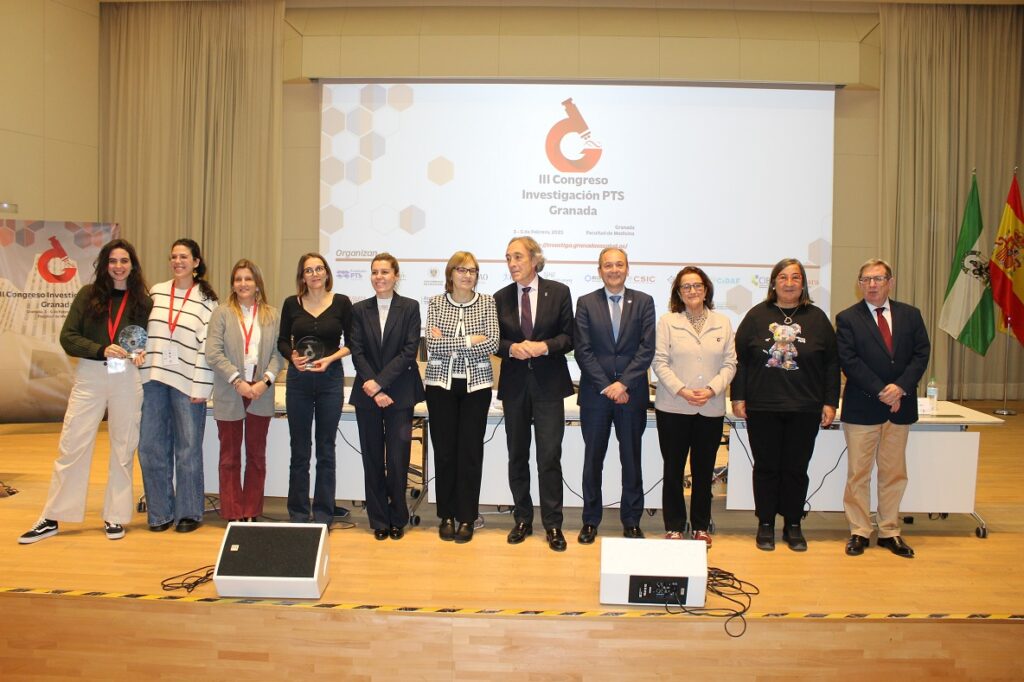
Granada, 6 February 2025. The 3rd PTS Granada Research Congress concluded its third edition with a positive balance of participation and recognition for the most outstanding scientific communications. From 3 to 5 February at the Faculty of Medicine of the University of Granada, the meeting brought together more than 400 professionals from the scientific and healthcare fields, clinicians, students, researchers and companies, who shared their advances in different areas of biomedicine and biotechnology.
The 3rd PTS Granada Research Congress provided a valuable space for knowledge exchange and collaboration, highlighting the fundamental role of research and transfer in the advancement of health and social welfare. The event, organised by the PTS Granada Foundation and the more than thirty public-private institutions that make up Granada Salud, is already planning its next edition with the aim of further strengthening the connection and the innovative and economic potential of the Andalusian ecosystem of life sciences and health.

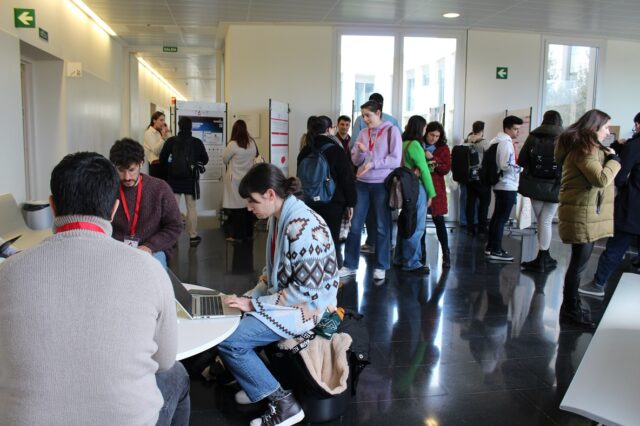
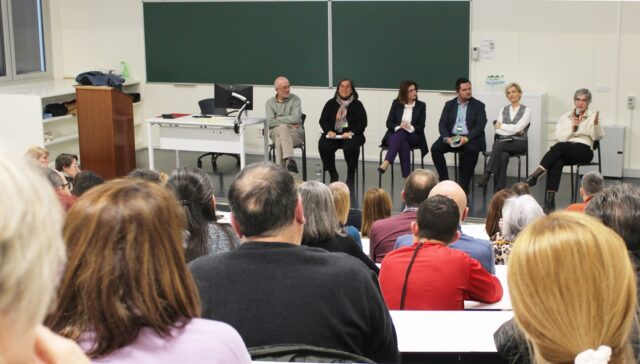
Over the course of three days, attendees enjoyed an extensive programme comprising: keynote lectures by specialists José Antonio Lorente and Marina Pollán, more than 110 oral communications and 190 posters on 12 thematic areas. The congress also included 3 parallel sessions on collaborative innovation, funding for business development, business creation and R&D&I, innovative bio-manufacturing technologies, and the role of patients’ associations in research, with the participation of more than thirty groups. In addition, congress participants were able to request B2B meetings with experts and companies, and participate in networking activities.
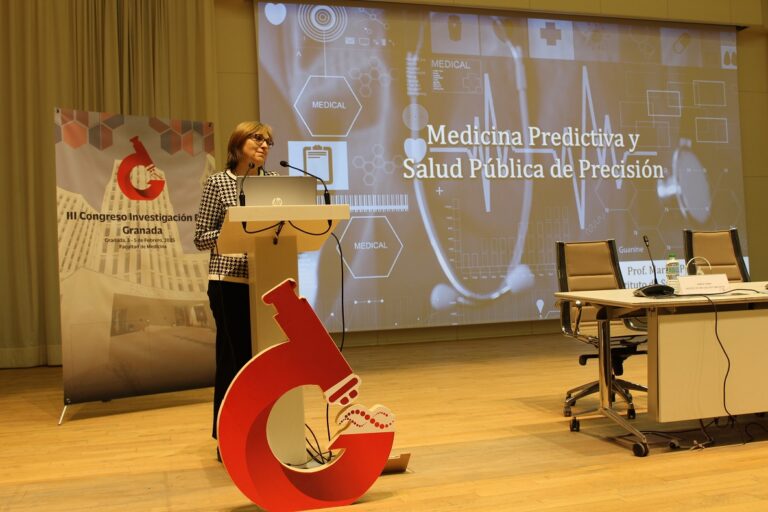
The closing ceremony of the congress was presided over by Mr. Indalecio Sánchez-Montesinos García, delegate for Health and Consumption of the Andalusian Regional Government, Ms. Margarita Paneque Sosa, delegate of the CSIC in Andalusia, Ms. Virginia Aparicio García-Molina, delegate of the Rector for Health and Relations with the Health System of the University of Granada, Mr. José Juan Jiménez Moleón, dean of the Faculty of Medicine of Granada, and Mr. Luis González Ruiz, managing director of the PTS Granada Foundation.
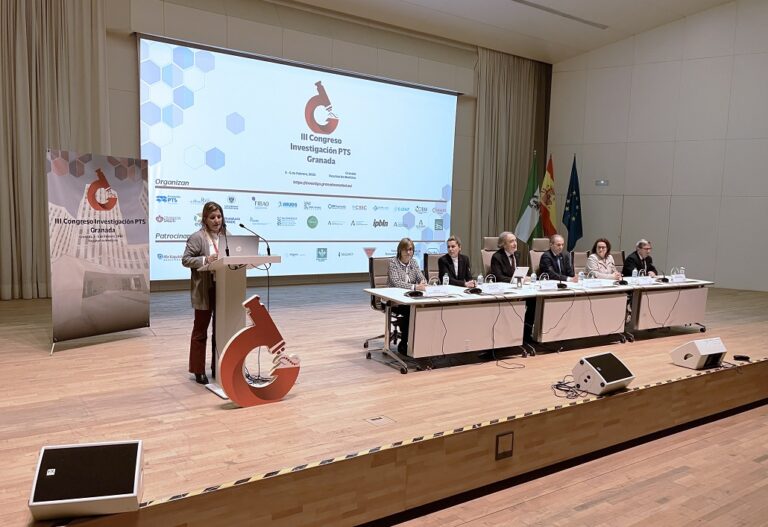
During the event, awards were presented to the most outstanding research projects, in which a Scientific Committee assessed their innovation, social impact and scientific quality, as well as their contribution to the advancement of knowledge in the area of life sciences and health. Two of the awards were judged by a vote of the audience.
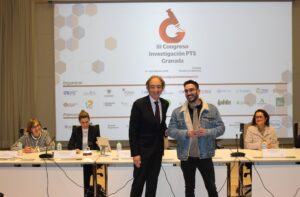
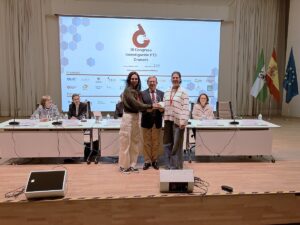
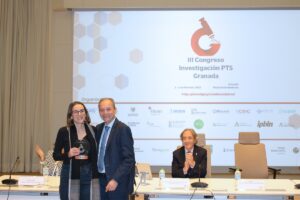
The winners were:
- Best Oral Communication Award: ‘Delays in seeking help for acute coronary syndrome: Results from the Spanish Cardiobarometer’, by Dafina Petrova. This research proposes an innovative methodology to study the anticipated delay in help-seeking in the general population, considering different sets of symptoms, with the purpose of identifying barriers and assessing the potential impact of future interventions.
- Best Oral Communication Award: ‘Impact of physical fitness on activities of daily living, work performance and quality of life in women with endometriosis’, by Ángel Rodríguez-Ruiz. The results of this study suggest that physical fitness is a key factor in the presence of alterations in occupational performance in activities of daily living, as well as specifically in work performance and quality of life.
- Best Oral Communication Award: ‘The splicing factor PRPF40B regulates neuronal growth and differentiation’, by María Duarte Ruiz. The results show its essential role in neuronal growth and differentiation by regulating transcription and splicing of numerous cellular genes. Modulation of the alternative splicing of one of these genes, NTRK2 (TRKB), could explain the essential functional role of PRPF40B during neuronal differentiation.
- Best Poster Award: ‘Validation of an international methodology for the in vitro simulation of gastrointestinal digestion in term infants’, by Delgado-Andrade C. The results have demonstrated the validity of the methodology implemented to assess the protein digestibility and bioaccessibility of nutritional components of infant formulas, offering a screening platform that may be useful to the pharmaceutical industry for the evaluation of new formulations before their launch on the market.
- Best Poster Award: ‘Olive tree compounds and ageing-related diseases: preliminary results of a clinical trial in patients with periodontitis’, by Tamara Y. Forbes-Hernandez. The main objective of the clinical trial was to evaluate the efficacy of treatment with an oleuropein-enriched supplement obtained from olive leaves in patients suffering from periodontitis (an age-related disease). Initial results suggest possible therapeutic applications and support the hypothesis that natural products may be beneficial in the treatment of periodontitis.
- Best Poster Award: ‘In vitro studies of the antitumour properties of prodigiosin in the treatment of central nervous system tumours’, by Raúl Vergara. Prodigiosin (PG) is a pigment derived from the secondary metabolism of multiple bacterial genera. The results obtained point to PG as a promising agent for the treatment of nervous system tumours. However, more in vitro assays and the design of in vivo assays will be needed to support its therapeutic potential.
Granada Salud is a strategic collaboration network that offers essential resources for the development of the health sector, at the service of companies, researchers, entrepreneurs and citizens. This initiative is part of the key objectives of the Regional Ministry of University, Research and Innovation of promoting and coordinating scientific and technical research, knowledge transfer, support for technological innovation and business investment in technology, as well as the development of entrepreneurial culture and technological entrepreneurship in the region.
The following entities form part of Granada Salud: UGR emprendedora, OTRI-UGR, Centro de Investigación Biomédica (CIBM), Instituto de Parasitología y Biomedicina López-Neyra (IPBLN), Fundación MEDINA, Centro Pfizer de Genética y Oncología (GENYO), Fundación IAVANTE, Biobank of the Andalusian Public Health System, Instituto Mixto Universitario de Deporte y Salud (IMUDS), Hospital Universitario Clínico San Cecilio, Hospital Virgen de las Nieves, Fundación de Investigación Biosanitaria Andalucía Oriental (FIBAO), Instituto de Investigación Biosanitaria (ibs. GRANADA), the Andalusian School of Public Health (EASP), the Experimental Station of Zaidín (EEZ-CSIC), the Granada Confederation of Entrepreneurs (CGE), the Association of Young Entrepreneurs (AJE), the Science Park, the Biological Air Quality Unit (UCBA-UGR), onTech Innovation, the Technological Circle of Granada, the Granada Chamber of Commerce and Andalucía TRADE. And recently IFMIF-DONES; Fundación AI Granada, Instituto Inteuniversitario Andaluz de Ciencia de Datos e Inteligencia Computacional DaSCI, Centro Tecnológico CIDAF, CITIC-UGR, and Fundación Andalucía Emprende have joined as new members.


